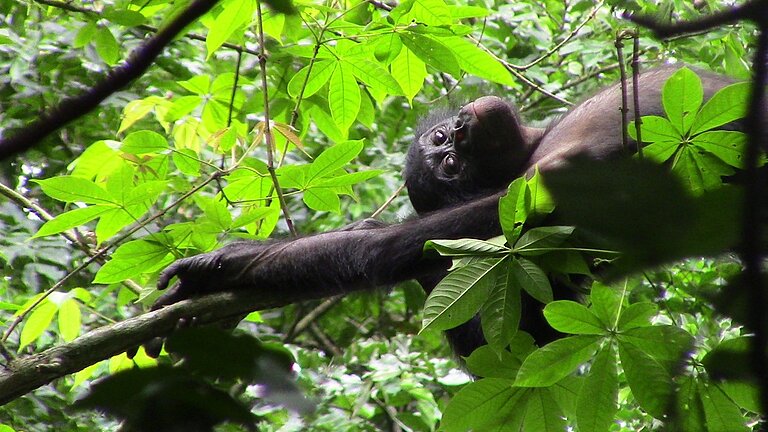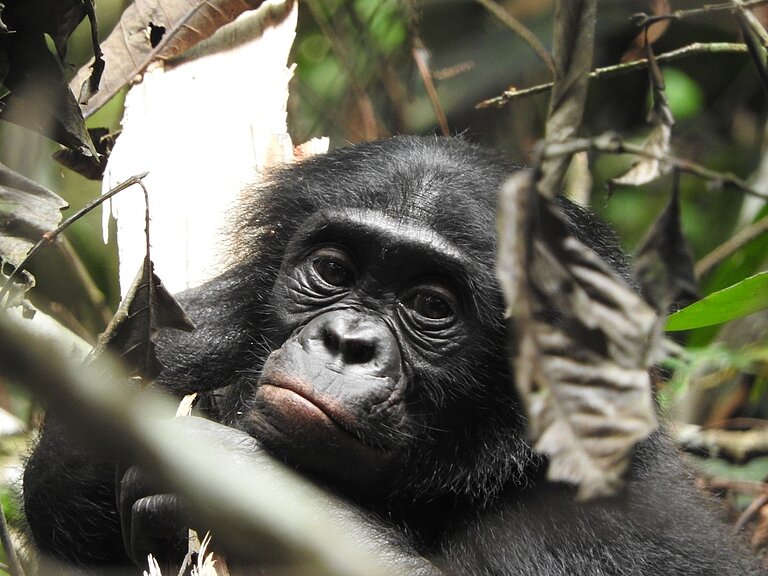Research projects
Bonobo intergroup encounters are often characterized as very peaceful especially when contrasted with chimpanzees. However little is known about the mechanisms and selective pressures underlying these encounters. To investigate the nature of peaceful intercommunity relationships we are currently conducting two complementary studies at Kokolopori:
The role of ecology in shaping intercommunity relationships in wild bonobos (Stefano Lucchesi, PhD candidate)
This project aims to study the influence of ecological and social factors on the variation in home range overlap and the encounter frequency between neighboring communities in bonobos. Furthermore, it investigates how different factors such as characteristics of the encounter location, energetic status of individuals, and the number of party members and maximally tumescent females influence the outcome of intercommunity encounters. Finally, to better describe the extent of variability in intercommunity relationships in bonobos, it compares the ecology and ranging patterns of neighboring communities between two geographically isolated populations (Kokolopori and LuiKotale).
Behavioural and endocrinological correlates of intergroup encounters in bonobos (Leveda Cheng, PhD candidate)


This study focusses on the social behaviour and underlying physiological mechanism that occur during meetings of neighboring communities in bonobos. In addition to characterizing individual variation in aggressive and affiliative behaviour, it will examine hormonal responses after interactions with outgroup conspecifics and compare these hormonal responses to those measured after social interactions with in-group members. Changes of individual testosterone and cortisol levels will allow for inferences about potential mechanisms of between-group competition in bonobos. Changes in oxytocin levels across different individuals will additionally give insights into the role of this hormone in facilitating peaceful intergroup relationships.